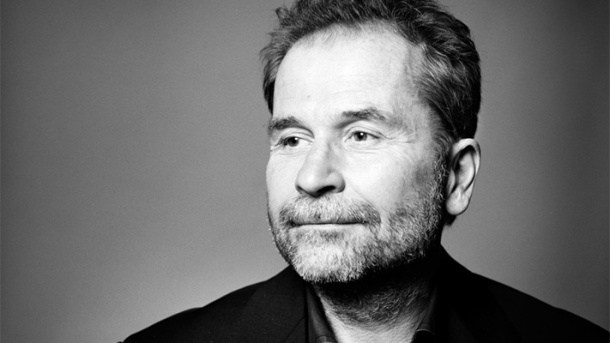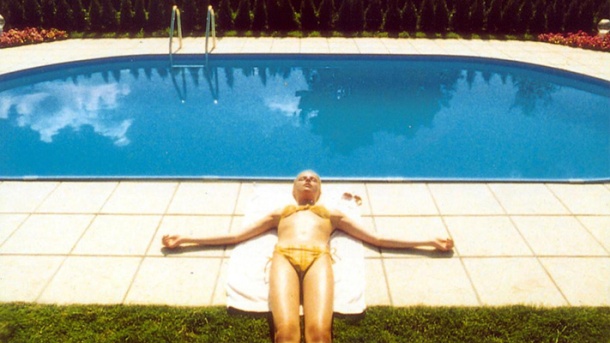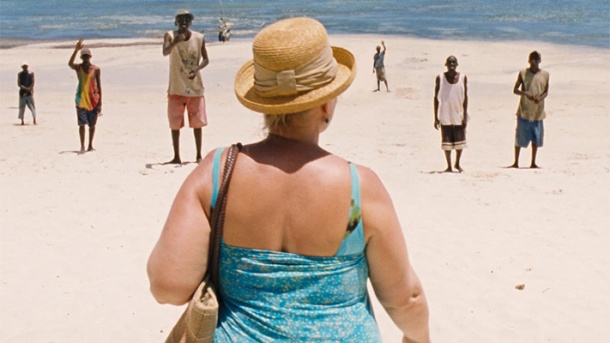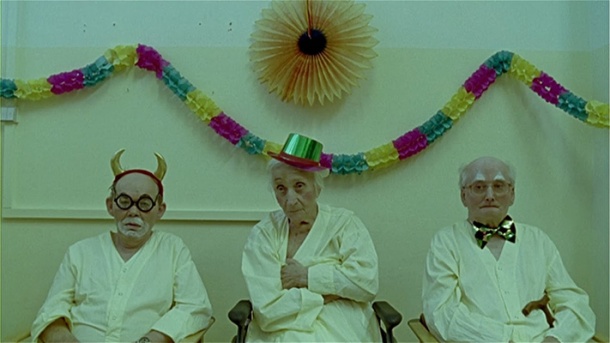
In Spotlight, we shine a light on upcoming, underappreciated or obscure filmmakers by taking a closer look at their filmography. This week, we explore the films of Austrian director Ulrich Seidl.
I became aware of Ulrich Seidl after watching a late night showing of Import/Export on TV. After the film ended, I distinctly remember stumbling as I made my way back up the stairs, so profoundly disturbed I was from what I’ve just seen. With Michael Haneke leading the way, Austrian cinema has grown a reputation for being oppressively dark and nihilistic in tone – Seidl follows in this tradition. Beginning his career as a documentarian, the provocative director has gained notoriety for his uncompromising visual style and his unflinching portrayal of people under the bleakest of circumstances.
Seidl didn’t gain major international attention until the release of his first fiction feature Dog Days in 2001. Shot over the course of three years, this blackly-comic drama weaves together six separate intertwining stories set in Vienna over the course of a sizzling summer weekend. The film comprises mostly of a selection of wildly detestable characters played by non-professionals; including dysfunctional couples, abusive boyfriends, and one pestering hitchhiker who meets a particularly sour end. The endless parade of torment and suffering is undeniably tough to stomach, and some will undoubtedly find it overbearing to the point of numbing exasperation.
More recently, Seidl has become known for the Paradise trilogy. Initially conceived as a single feature, each film in the trilogy explores a separate topic and centres on a different female character from the same Austrian family. The first instalment, titled Paradise: Love, stars Margarethe Tiesel as Teresa, a middle-aged woman who takes solo trip to Kenya and begins a love affair with a young African man named Munga (Peter Kazungu). The insecure woman is hopeful that this relationship is based on genuine attraction, but when Munga begins asking for money, his intentions are made perfectly clear. Imbued with unsettling imagery, Paradise: Love is a difficult, discomforting experience, but it’s not completely without moments of genuine tenderness.
Import/Export remains my favourite Seidl film, however. This 2007 drama tells a grim tale of a Ukrainian nurse and single mother named Olga (Ekateryna Rak), who heads West in order to search for work in Austria. Simultaneously, an unemployed Austrian security guard called Paul (Paul Hofmann) along with his stepdad goes in the opposite direction for the same reason. As you may expect, this becomes a turbulent journey for both parties. Unlike other Seidl films which can seem overly cynical, I found this to be a sincere and heartbreaking account of Europeans desperately seeking a better life.
To watch a Seidl film isn’t easy, and to enjoy it is even tougher. Even Werner Herzog himself remarked “Never have I looked so directly into hell,” after watching the Austrian’s Animal Love. But although his work can be divisive and tough to digest,they are provocative and confrontational in the way that makes them impossible to forget.


